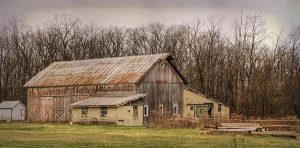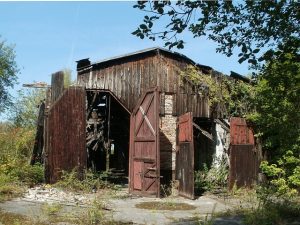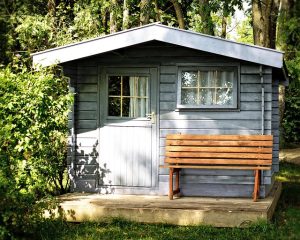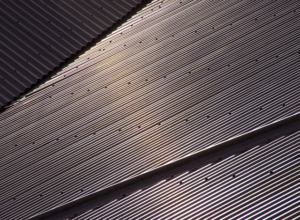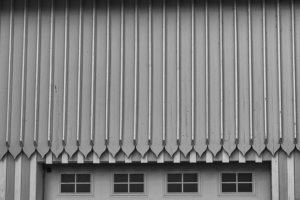Optimizing Farm Sheds: Durability and Design in Albury’s Agricultural Scene
In Albury, farm sheds are essential multi-functional structures that support the agricultural sector by offering durable and intelligent storage solutions tailored to withstand the region's variable climate. These sheds are designed for en…….
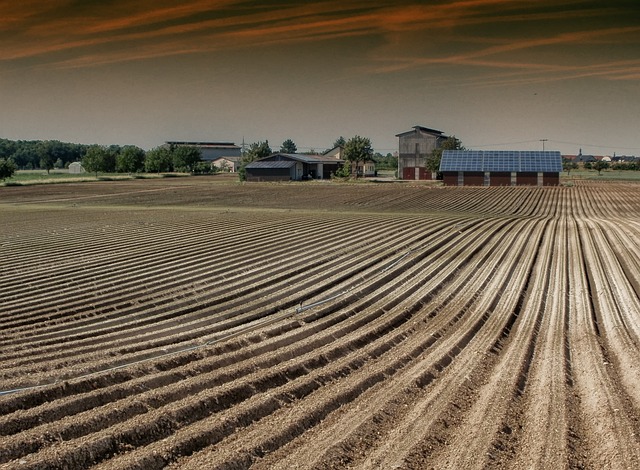
In Albury, farm sheds are essential multi-functional structures that support the agricultural sector by offering durable and intelligent storage solutions tailored to withstand the region's variable climate. These sheds are designed for energy efficiency, featuring natural ventilation and insulated roofing to minimize the need for artificial heating and cooling, thus optimizing operational costs. Customization is key, with sheds being built to meet specific needs such as hay storage or poultry housing, incorporating sturdy frames, cladding, and adaptable designs that can be expanded or modified over time. Their longevity and versatility make them a sustainable investment for local farmers, who rely on them to maintain productivity in the face of changing demands, including seasonal produce storage and precision agriculture integration. The farm sheds in Albury also serve as hubs for various operations like crop drying, animal sheltering, equipment maintenance, and storage, exemplifying innovation within the agricultural industry. To ensure their longevity and efficiency, farmers are encouraged to maintain and modernize these structures through regular inspections, use of resilient materials, and investments in energy-saving features. Keeping up with advancements in farm shed design is crucial for Albury's farming community to retain robust, functional, and cost-effective facilities that enhance productivity and profitability while adapting to the region's unique climatic conditions.
Exploring the multifunctional nature of farm sheds within the dynamic agricultural scene of the Albury region, this article delves into their durability and innovative design adaptations that cater to the diverse farming activities. From the traditional role of crop storage to their transformation into modern agricultural hubs, these structures have become indispensable in Albury’s rural landscape. We’ll examine the customization options available, ensuring farm sheds align with the specific demands of local farmers. Additionally, maintaining and upgrading strategies for optimal longevity and efficiency are discussed to help Albury’s farming community maximize the potential of their agricultural investments. Farm shed solutions in Albury reflect a blend of practicality and resilience, vital for the region’s thriving agrarian sector.
- Exploring the Durability and Design of Farm Sheds in Albury's Diverse Agricultural Landscapes
- The Role of Farm Sheds in Albury: From Crop Storage to Modern Agricultural Hubs
- Customization Options for Farm Sheds: Tailored Solutions for Albury's Varying Farming Needs
- Maintaining and Upgrading Your Farm Shed: Best Practices for Longevity and Efficiency in Albury
Exploring the Durability and Design of Farm Sheds in Albury's Diverse Agricultural Landscapes
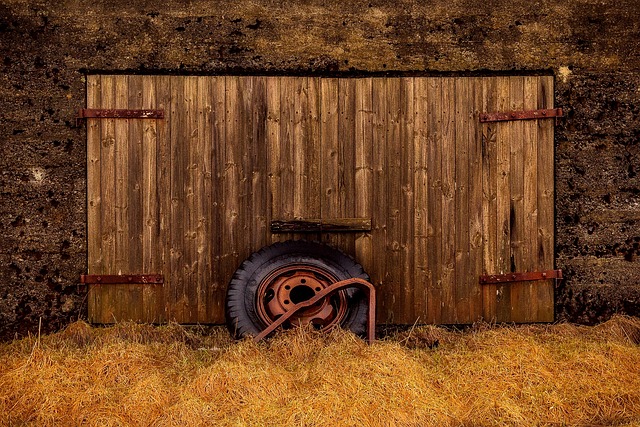
In Albury’s diverse agricultural landscapes, farm sheds serve as the backbone of rural operations, showcasing a blend of durability and thoughtful design that stands up to the region’s varied climate conditions. These structures are more than mere storage units; they are integral components of the farming ecosystem, providing shelter for machinery, livestock, and crops while withstanding the rigors of seasonal weather changes. The materials used in constructing these farm sheds are selected for their resilience to both heat and cold, ensuring that the contents within remain protected throughout the year. Moreover, the design of these sheds often incorporates energy efficiency features, such as natural ventilation systems and insulated roofing, which reduce reliance on artificial heating and cooling, thus optimizing operational costs for local farmers.
The design of farm sheds in Albury is not a one-size-fits-all solution; it’s tailored to meet the specific needs of each farm, whether it’s for storing hay bales, sheltering poultry, or housing equipment. These sheds are constructed with robust frames and cladding that can endure strong winds, heavy rainfall, and the harsh ultraviolet rays characteristic of the region. Additionally, the layout is often planned to facilitate easy movement of farm vehicles and animals, ensuring smooth workflow and efficiency in daily operations. The adaptability of these sheds means they can be expanded or modified over time, making them a sustainable investment for Albury’s farming community.
The Role of Farm Sheds in Albury: From Crop Storage to Modern Agricultural Hubs

In the Albury region, farm sheds transcend their traditional role as simple storage structures. These multifunctional buildings are pivotal in supporting the diverse agricultural activities that define this area’s farming practices. Historically, they provided secure spaces to store crops and machinery, shielding them from the elements and ensuring their longevity. Today, farm sheds have evolved into modern agricultural hubs, accommodating a range of activities from crop drying and animal shelter to equipment maintenance and storage. The adaptability of these structures allows farmers to tailor their design and functionality to specific needs, enhancing operational efficiency and sustainability. In Albury, where the agricultural sector is both varied and vital to the local economy, farm sheds play a crucial role in adapting to the changing demands of farming, whether it be for seasonal produce storage or as a base for high-tech precision agriculture.
The evolution of farm sheds in Albury reflects the region’s commitment to innovation within the agricultural sector. These sheds are often designed with best practices in mind, incorporating energy-efficient materials and layouts that optimize space and resource use. They serve as a testament to the resilience and resourcefulness of local farmers who continuously seek ways to enhance productivity while minimizing their environmental footprint. The farm shed’s versatility is further underscored by its ability to host value-added processing activities, such as fruit packing or grain sorting, thereby shortening supply chains and adding value directly on the farm. As a result, these sheds are not just an integral part of Albury’s rural landscape but also a critical component in the region’s agricultural success story.
Customization Options for Farm Sheds: Tailored Solutions for Albury's Varying Farming Needs

In the Albury region, farm sheds serve as more than just storage structures; they are pivotal elements in the agricultural landscape, catering to the diverse needs of local farmers. The versatility of farm sheds in this area is underscored by their ability to be fully customized. These tailored solutions range from size and material selection to design features that address specific farming requirements. Whether it’s for storing equipment, sheltering livestock, or providing a secure space for produce, the options for customization ensure that every farm shed is an efficient response to the unique demands of Albury’s agricultural activities.
Local suppliers understand that each farm presents its own set of challenges and opportunities. As such, they offer a wide array of choices in design and materials, from corrugated iron for durability against harsh weather conditions to timber options that blend form with functionality. With the ability to integrate aspects like roller doors, mezzanine floors, and customized workbenches or feed troughs, these farm sheds are not just built to last but are also designed to adapt to the evolving needs of Albury’s farming sector. This commitment to adaptability and quality ensures that every farm shed becomes an indispensable asset on local farms, enhancing productivity and profitability.
Maintaining and Upgrading Your Farm Shed: Best Practices for Longevity and Efficiency in Albury

In the Albury region, maintaining and upgrading your farm shed is crucial for ensuring its longevity and efficiency. Regular maintenance routines should be established to address structural integrity, roof condition, and door functionality. This includes routine inspections, timely repairs, and proper sealing against weather elements. Employing durable materials resistant to local environmental conditions, such as galvanized steel or treated wood, can significantly extend the life of your farm shed. Additionally, upgrading to energy-efficient features like insulated panels or LED lighting can enhance operational efficiency, reducing energy costs over time.
For those looking to upgrade their farm sheds for better functionality, consider modular additions that cater to specific needs, such as climate control systems or improved storage solutions. These modifications not only improve the usability of the space but also increase the property value. Albury’s unique climatic conditions demand smart design choices, like ventilation systems for hot summers and effective drainage during rainy seasons. By staying abreast of technological advancements in farm shed design and construction, farmers in the Albury region can maintain structures that are not only robust and durable but also highly functional and cost-effective in the long run. Regular updates and maintenance are integral to this process, ensuring that your farm shed continues to serve its purpose effectively for years to come.
In conclusion, farm sheds in the Albury region serve as versatile structures that are indispensable to modern agriculture. Their durability and thoughtful design cater to a multitude of needs, from safeguarding crops to functioning as dynamic agricultural centers. Customization allows these sheds to align with the unique requirements of local farms, ensuring optimal functionality and efficiency. For farmers in Albury, maintaining and upgrading their farm sheds is not just a necessity but a strategic investment for long-term success. The insights provided underscore the importance of considering farm sheds as more than mere storage facilities; they are pivotal assets that contribute to the vitality and progression of agricultural endeavors in the region. Farmers are encouraged to regularly assess and enhance their farm shed infrastructure, leveraging local expertise to adapt to evolving farming practices and environmental conditions.
